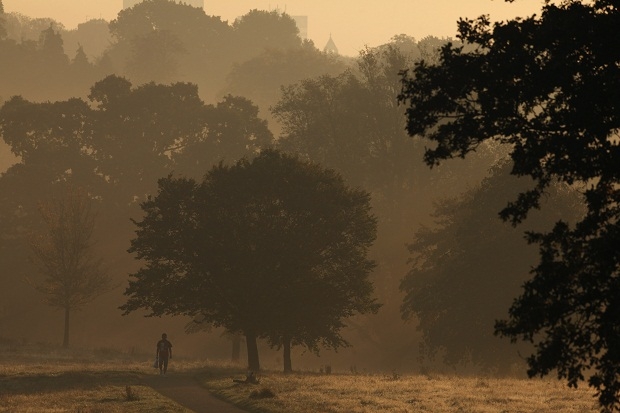If I was going to measure possible reasons to desert the Tories at the next election, and I can think of a couple, plans to concrete over the countryside would score pretty highly. As a theoretical idea about something happening miles away from my home it almost makes me want to write letters to the Telegraph; if it were in my backyard I’d be shaking my fist at passing traffic or whatever people in the countryside do when they’re angry.
This is moderately dangerous to the party, because what’s different now to, say, five years ago is that disaffected shire Tories have a plausible alternative to turn to, one that isn’t just opportunistically opposing plans (and therefore likely to change) but which is campaigning against the primary cause of de-greening. After all, some 60 per cent of our future house building needs is due to immigration and if you factor in recent immigration that rises to about 90 per cent. Voting Ukip is therefore a clear and effective message.
Even taking aside the I-word though, we don’t have to touch the green belt or loosen planning to build more homes. It just depends on whether you want a libertarian or authoritarian planning system.
The downside with libertarian planning systems, like one our libertarian government would like, is that they tend to produce quite ugly cities. Compare America’s jumbled inner cities and often soulless suburbs and exurbs with continental Europe’s beautiful and compact urban areas; compact cities not only have environmental benefits but civic benefits, too, that sense of boundedness being thought by sociologists to add to social capital; for the English it provides that ‘village feel’ the English love (but without the poverty and incest of actual village life), and which ribbon developments tend to mar.
Obviously America’s cityscape is a product not just of modernity and cars but of liberty and democracy too, and Europe’s beauty a product of despotism. Liberal England began to sprawl in the 20th century, checked by post-war planning regulations, although this came at a time when we were building on the cheap and the architecture business was going through a period of collective insanity.
But the south-east of England is still full of towns with low-density centres, and some of these, it has to be said, aren’t the prettiest. In some cases development is expanding outside the town while the town centre is left under-populated, because no one wants to live there. So what England really needs is not so much a Nick Bowles as a Baron Haussmann who could build beautiful, high-capacity town centres and so spare the countryside.
That’s rather against our traditions, since these sorts of schemes have tended to rely on overbearing, even arbitrary power such as they had in France; the English, with their long tradition of the nuclear family, have also prized the ideal of the house with its garden rather than the shared apartment block. But those were products of a society with space to afford such luxuries; and so high are our housing costs now that the nuclear family is becoming a luxury itself.
There is another solution. There seems to be a strong correlation between people who wish to ease planning laws and those who are in favour of the free movement of labour, both groups being concentrated in London where almost all pro-migration sentiment is located. That being the case, as Rod Liddle suggested in his Sunday Times column (£), why not build in London instead?
Rod suggested Clapham Clapham; Hampstead Heath, which covers 790 acres, could also probably fit in 20,000 or so more people. As I live near the Heath I know that suggesting this would make me something of a Paul Robinson figure when he tried to turn Ramsey St into a supermarket, but it makes more sense to build near where the jobs are rather than forcing people into more gruelling commutes.
Sure it would ruin people’s quality of life, make their environment less beautiful, and destroy their sense of neighbourhood, but it would also boost the economy, at least in the short term. And if the people of Hampstead or Highgate or Clapham didn’t like these proposals, well they could always move somewhere else, or vote for a party that would stop it.
That won’t happen, of course, because the people of Hampstead and Highgate have power, and those in rural England don’t. And that’s what it comes down to in the end.







Comments